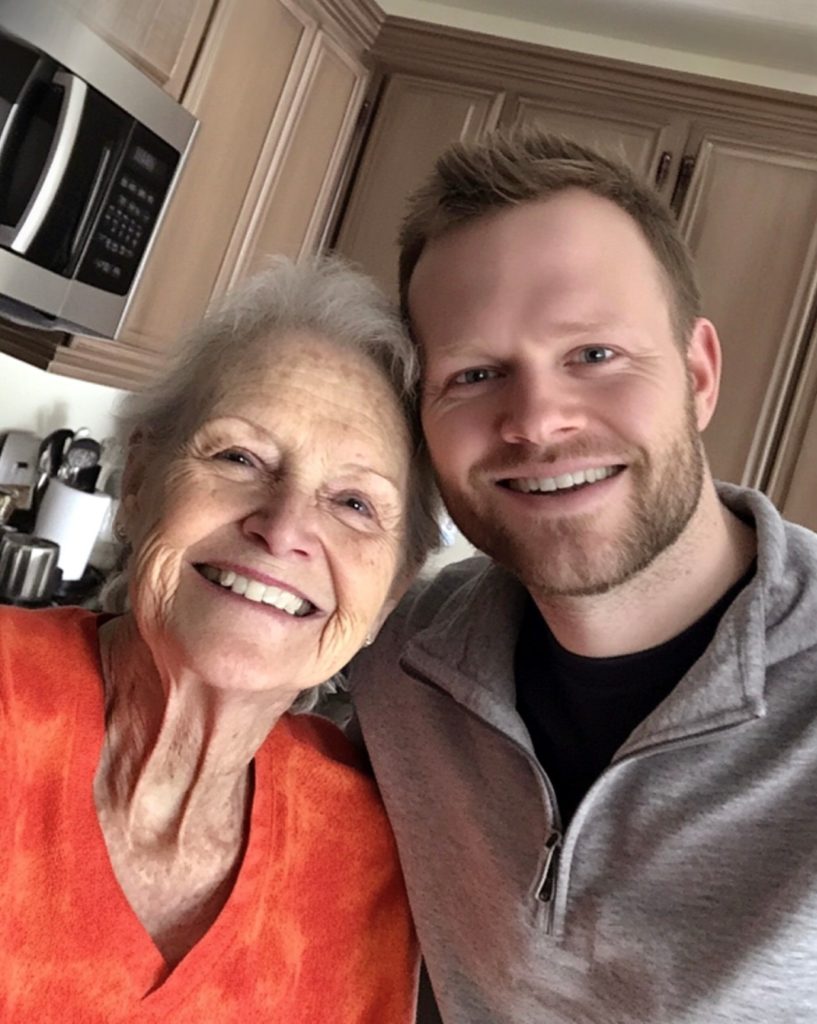After four years of silence, my son reappeared on my doorstep—not with apologies, but with a lawyer demanding that I vacate my own home. He didn’t know that this lawyer was my high‑school sweetheart and had a plan that would change everything, and not at all as he imagined.
I hadn’t seen my son in four years. Not a call, not a message, not a visit. After his father’s death, he’d taken whatever he wanted—his father’s car, his watches, his money—and then vanished. No farewell, no explanation. Just gone.

It hadn’t always been this way between us. My son, Brian, was a kind boy. But everything changed after his father passed away. My husband had been ill for a long time, and though we knew it would happen, his loss shattered something in both of us.
From the funeral on, Brian shut down. He didn’t shed a tear. He didn’t stay. He didn’t even make sure I was okay. Instead, he took everything he could from his father’s things and left. I was too heartbroken to stop him. The watches, the money, even my husband’s car—he took it all.
Over time, I learned to get by on my own. I maintained the house despite the bittersweet memories it held. My husband had left it to me, and it had become my refuge. All those years, I never heard a word from Brian. Eventually, I mourned his absence and moved on—with pain, but I moved on.
I wasn’t prepared to see him again—especially not like this.
Yesterday, he appeared on my doorstep. My heart leaped when I saw him, and for a moment I thought he had come to apologize. I even smiled, hoping he was ready to make things right.
But as soon as I opened the door, I saw someone at his side. A man in a sharp suit, leather briefcase in hand. My son’s face was icy, devoid of warmth.
“He is my lawyer,” Brian said in a cutting voice. “You have until tomorrow to leave this house, or we’ll take you to court.”
I froze. It made no sense. Leave my house—the house I’d lived in with his father, that I’d cared for all those years? My chest tightened as I glanced at the lawyer, hoping for a misunderstanding. But this was real.
“You’re suing me for my house?” I whispered.
“Exactly,” they replied, arms folded. “It belongs to me now.”
The lawyer remained impassive, but in a flash I recognized him. He said nothing, but when our eyes met, a subtle wink confirmed his identity—far from Brian’s notice.
“What are you talking about?” I asked, my voice trembling but steady. “This house is mine. Your father bequeathed it to me.”
Brian gave a cold smile: “I don’t think so. You cling too tightly, Mom. It’s time to move on.”
My mind raced, but I couldn’t tear my eyes from the lawyer beside him. Why did he seem so familiar?
The lawyer cleared his throat and turned to Brian: “I think we should have a private conversation with your mother before making a final decision.”
Brian rolled his eyes: “Fine. Five minutes,” he grumbled, strutting back to his car.
No sooner had he gone than the lawyer faced me and, with a small smile, murmured: “Long time, isn’t it, Mary?”
A wave of emotion crashed over me. He wasn’t just any lawyer—it was James, my first love from high school. We’d been inseparable once, until life pulled us apart. And now he was working for my son, against me.

“James?” I breathed, incredulous.
He nodded, eyes softening. “Yes. And don’t worry—I’m here to protect you. Come inside.”
Once we were inside, James closed the door and looked me in the eye: “Mary, I know this hurts. I can’t believe Brian is treating you this way. But trust me, we can stop him. He doesn’t know what he’s gotten into.”
I shook my head, tears threatening: “I don’t understand. He was so caring… and now this? He wants to throw me out of my home, James.”
James nodded sympathetically: “It’s painful when your own child makes a bad choice. But he’s playing with fire. Let me go back to him—and tomorrow we’ll give him a call he won’t forget.”
The next morning, James returned with a warm smile and a bag of freshly ground coffee beans.
“I thought we’d start with a coffee to relax a bit,” he said, handing me the bag. “It’s been a long few days.”
After our coffee, James checked his watch: “Time.” He pulled out his phone: “I’m calling Brian.”
I stood frozen as he dialed. At the other end, Brian’s haughty voice rang: “What now?”
James remained calm: “Brian, we need to talk. You need to understand your situation.”
Brian sneered: “My situation is that I have the upper hand, right?”
Unfazed, James replied: “Actually, you don’t grasp the consequences. What you did after your father’s death—taking and selling his car, his watches, all without permission—amounts to theft.”
I heard Brian gasp—he hadn’t seen that coming. I felt his confidence waver.
“You’re kidding?” he spat. “Those things were mine!”
“No,” James answered firmly. “They belonged to your father, and your mother never gave you permission to take them. Witnesses saw you selling those items. You’re lucky we haven’t reported this yet. But if you persist, everyone will know.”
A heavy silence fell. Brian struggled for words: “You mean I could get in trouble over that?”
“Yes,” James confirmed. “A fine or worse. And if you refuse to withdraw your case, you’ll lose far more than a house.”
After another long pause, Brian’s voice softened: “What do you want me to do?”

James exhaled: “Drop the lawsuit, Brian. Walk away while you still can. I’ll make sure nothing else happens to you. Otherwise, you’ll regret more than this house.”
What felt like an eternity later, Brian murmured: “Alright. I drop it.”
When James hung up, I felt the weight lift from my shoulders. He smiled: “I just told him the truth. Sometimes that’s all it takes.”
I watched him prepare another cup of coffee; everything seemed right again, as if nothing had changed. And I realized justice had been served—not by vengeance, but by the power of truth.